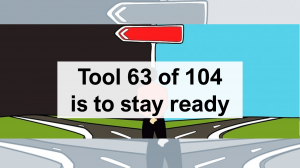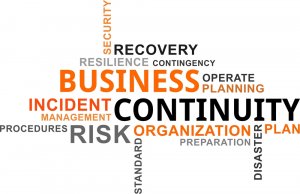That long-awaited promotion or C-level career job has finally landed, what next? When you get promoted to a senior management role, it is possible to get lost. You need leadership tools to help you navigate the unpredictable challenges of the position’s responsibilities.
Great leaders have excellent communication skills. They communicate to influence not just to inform. The ability to wow the audience and give them fresh perspectives to win. To tell them what they want to hear and leave them yearning for more. To share a message of reconciliation, healing, hope, and then offer practical solutions to win. To make the audience buy into your message and remain hopeful.
Tool 1 in any leader’s toolbox is saying more in a few but impactful words.
No one likes a speaker who keeps rambling on and on and on without end. A great speech should last 15 to 30 minutes. If it is a training session, it may last 45 minutes to 60 minutes if it is interactive. As you may probably have learned in your MBA studies, a great speech has an introduction, body, and call to action message or the conclusion. You must make it memorable and personal. Many people say it is not good to be emotional as a leader. That is not true. Great leaders must have and show their feelings. When it comes to influencing people, making a connection is key. It is difficult to connect if you are not emotional. You must aim to speak to the other person’s heart, not to the brain only. And this means, find emotional stories where you are one of the characters and deliver your talk in a compelling way full of dialogue with other characters for a dramatic impact.
In a typical speech, start by defining the key message or learning outcome which you want your audience to know after the presentation. Write down one statement that summarizes the key message. Memorize your opening such that you make a great first impression.
For example, if you are a member of parliament seeking re-election, your message must be different from that of the first time aspirant. For your next campaign launch speech, the message must be such that you are continuing the work you have started. You have to identify your key achievement in the past term or terms and highlight it aggressively. And show people what they would lose if they do not elect you to return to parliament and complete that work, which is about to start delivering benefits. Remember, focus on the facts and the truth for if you lie, you will easily be caught by your opponents and all your talk will be exposed as mere rhetoric. Consider the following opening:
Your health is not for sale!
“When I was young, mom called me to her rush my [insert name of your late relative here], to hospital. He was complaining of much pain in the chest. We carried him on a bicycle to the local hospital. However, the officers on duty refused to admit and treat him since we did not have money.
An hour later, he died [sob. Silence].
I came to parliament never to allow such a thing to happen to anyone in this sub-country. During my first term, I mobilized my friends, and we started a fund to build a hospital in our village. Today, we have 50% of the funds. During the next term, we shall start the construction.
I know my opponents may have more money and are willing to buy you salt, sugar, and face masks. But that is for today. What happens after the election? Will you stop falling sick? Will you stop eating? Will you stop paying school fees? You need to send me back to Parliament to enable me to finish the projects that will transform your life.
Your health is not for sale. Vote for me to secure your health and education of your children, relatives, and friends.”
As you can see that speech tries to get people to see your vulnerability. They connect with you instantly because somehow someone in the audience has lost someone or knows someone who lost someone. This creates an instant connection at an emotional or heart level. From then on, people will pay attention to it.
Great speeches have an end game. What is that you want to achieve? Is it to influence people to make a decision, in this case, to vote for you? Understand the needs of the majority of your audience. And speak to that.
If in doubt, ask the local leaders, elders, and influencers. They will tell you the challenges of the community. Find a way to connect.
In case you have missed it, tool 1 of great leaders is a short speech introduction script, which they cram before they go out to speak. The first minute of your presentation is so critical. You must set the stage to love you. Write down your key message. Refine it. Practice it and know it by heart. Then in the body, have 2-4 points that reinforce your opening message. Find examples or metaphors or analogies to drive the point home. And don’t forget your call to action message at the end. You will be seen as a great speaker.
Want to join my private leadership support services? Contact me. I help managers become leaders. And leaders win in their roles. I will teach you how to achieve your career growth goals in 3 years, which take others 6 years to achieve. That is 2x faster!
To be continued to Tool 2.
Copyright Mustapha B Mugisa, 2020. All rights reserved.



